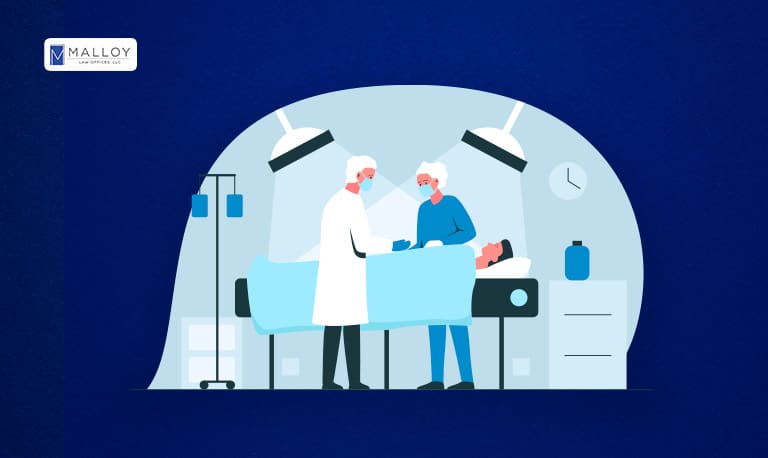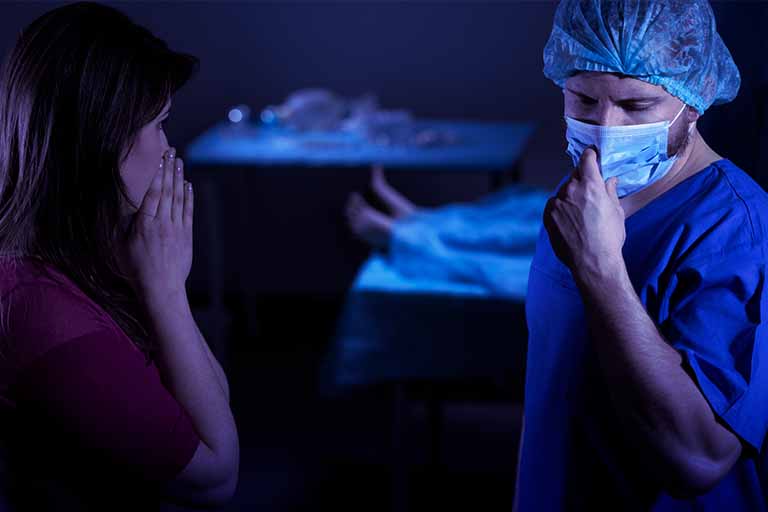Differences Between Medical Negligence and Medical Malpractice
Your average medical doctor is one of the most educated people on the planet. In addition to four years of undergraduate collegiate study and then four more years of medical school; they then must pass a challenging board exam and spend three to seven years in residency at a teaching hospital. While this education bestows a wealth of knowledge and practical experience in the medical field; it does not confer any superpowers. Doctors are people. They are professionals in a high-stress, high-pressure field. A doctor must always strive to be at their best and approach each new patient with the utmost seriousness. Any mistake may have serious consequences. Indeed, it may constitute medical negligence, or even malpractice. Today’s blog post will compare and contrast medical negligence and medical malpractice. We’ll be drawing distinctions between these often ambiguous categories of personal injury.
Defining Medical Negligence and Medical Malpractice
Let’s begin with some simple dictionary definitions and then illustrate them with practical examples.
- Medical Negligence – A decision made or action taken by a healthcare professional which accidentally causes injury to a patient under their care.
- Medical Malpractice – A decision made or action taken by a medical professional aware of the potential consequences which results in injury to a patient under their care.
These definitions are similar and may even overlap (malpractice can be considered negligent). They are also simplified somewhat for the layperson. An experienced attorney can differentiate the two with more accuracy and decide which applies to your unique situation (if either do).
Drawing the Line
So how do we differentiate the two? The following questions may be of help.
- What set the stage for the error to occur?
- When the action or choice was made, was the healthcare practitioner aware of the potential outcomes?
- Were there procedures in place to stop the error from happening? Did the protocols go overlooked?
- Was the medical practitioner attempting to provide the finest care possible?
- Was that a genuine error that anyone may have made?
Medical Negligence and Medical Malpractice in Practice
The difference can be best understood as one of awareness. A mistake in treatment can often be ascribed to simple human error. Where this mistake becomes malpractice is in the behavior of the medical professional. Let’s demonstrate an example.
A surgeon accidentally slices into an artery while performing a routine surgery. This accident may qualify as negligence, but assuming the surgeon followed all professional protocols and best practices for minimizing the impact of such a surgical error, it would likely not cross the threshold into medical malpractice.
Now let’s say that a similar situation occurs. A surgical error during a routine procedure causes injury to the patient. However, in this situation the surgeon has a waiting room full of patients whose surgeries are also scheduled for today. Taking time to properly triage the patient’s injury would be professionally inconvenient for the surgeon, so they hastily close up the wound and release the patient, who later suffers an infection or internal bleeding. This is textbook medical malpractice. The doctor ignored the protocols demanded by their profession and caused greater injury as a result.
Navigating the Aftermath
If you or a loved one suspects medical negligence or malpractice, your first step should be reporting your concerns to the relevant healthcare providers. They’ll be best equipped to evaluate your situation and diagnose any injury you may have. A hard record of their diagnosis will also be invaluable in proving the seriousness of your injury as well as its cause. Secondly, you should contact your state’s medical licensing board. Finally, you should make plans to contact a medical malpractice attorney. They’ll be able to evaluate your unique situation and craft an action plan to win maximum compensation on your behalf. Don’t hesitate to pursue the damages you’re entitled to! The longer you wait, the harder it will be to prove negligence or malpractice.



